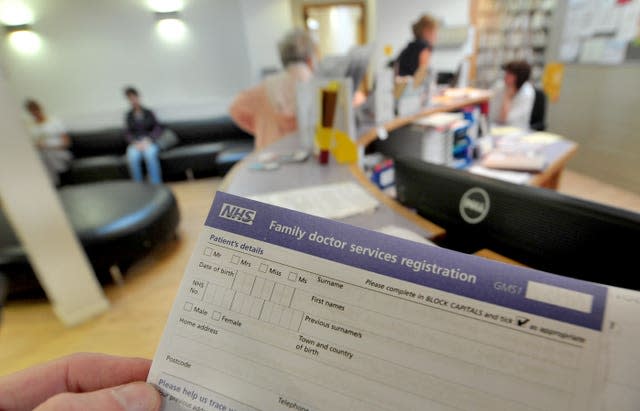GP ‘hub’ plan sparks patient safety concerns
A policy that could mean people having to travel if they want to see a GP for a same-day appointment has sparked concerns about patient safety and continuity of care in an area of London.
North West London Integrated Care System (ICS) is behind plans for the so-called same-day access hubs, which it said will bolster access to primary care.
The hubs – which could be located at psychical sites, or delivered virtually – will bring GP practices together in networks, with multi-disciplinary teams.
The scheme is expected to affect more than two million people when it is rolled out from April.
According to an article published on the ICS’ website, the hubs will triage patients and refer them to the most appropriate service, which could include an urgent appointment with their family doctor or an appointment with a community pharmacist.
If an appointment is not available at a patient’s practice on the same day, they could be referred to another practice.
North West London ICS said this “might involve travel in some cases” but not all hubs will be in physical locations, adding that “it is for local primary care networks to decide whether their hubs are physical or virtual”.
Dr Genevieve Small, a Harrow GP and medical director, primary care, at NHS North West London, wrote: “Patients consistently tell us that getting a GP appointment can be difficult.
“We have developed a plan that will increase same day access to GPs, community pharmacists and other primary care professionals for those patients who need it.”
However, campaign group Hammersmith & Fulham Save Our NHS (HAFSON) has raised concerns about the impact of the plans on patient safety, continuity of care and on GPs.
HAFSON member Jim Grealy, 77, told the PA news agency the proposals “turned up out of the blue, in the most opaque way” in October 2023.
He said: “We know there were 10 practices involved in the pilot. Where’s the evidence? And has it been independently reviewed? No evidence has been published.”
Merril Hammer, 78, who is also part of HAFSON, told PA: “Our concerns are exactly the same as GPs – they are about patient safety.
“They are talking about care coordinators actually making the decision of who the patient should be referred to.
“Our own GP asked to see us and described care coordinators as little more than reception staff in GP surgeries. That’s really worrying that they’ll be making a decision if a patient is referred to a pharmacist, a physician associate, a nurse or a physio.

“And how a single GP is to supervise all these decisions just seems impossible.”
Dr Small said that the new approach will be “introduced gradually” to “ensure that GPs have more time to proactively care for their patients who most need their expertise, including those with long term conditions”.
She added: “I want to be clear that clinical decisions and referrals will continue to be made by clinical staff.
“Non-clinical staff such as care navigators and coordinators will support by signposting patients to the right service for them, based on clinical advice – in much the same way that practice reception teams work, but with closer clinical supervision.”
The Royal College of GPs (RCGP) said it is “always open to new ways of improving patient access” and “if implemented appropriately” same-day access hubs could streamline processes and improve patient experience.
However, chairwoman Professor Kamila Hawthorne, added that there are “concerns about how this model could impact continuity of care, which research consistently shows is beneficial for patients and the NHS”.
“It’s the trusted relationships between GPs and patients, built over time, that help us to give patients the holistic care they often need,” she said.
“We’re also concerned that if all minor ailments are funnelled off to same-day access hubs, then GP workload would shift to solely treating more complex, long-term conditions, which require significantly more time.
“Whilst this is the type of care that GPs are highly trained to deliver, it would have implications for workforce planning in general practice, as we currently plan our time and staffing schedules around delivering care to a wide range of patients and conditions.”
Ms Hammer told PA there is a shortage of GPs and North West London “is badly affected”.
“Continuity of care is not as good as we might want, but if it’s in the same GP practice at least there is a degree of continuity of care, which these hubs are going to destroy,” she said.
She also warned there is a risk of patients with non-complex conditions being “fobbed off, farmed out to other health practitioners”.
Mr Grealy added that seeing variety of patients is beneficial to clinicians. He said: “A really insightful GP will see a variety of cases and build up a repertoire of experience.”
Prof Hawthorne said that the RCGP will “be watching this initiative with interest” and called for it to be “robustly evaluated” before it is rolled out more widely.

 Yahoo News
Yahoo News 
